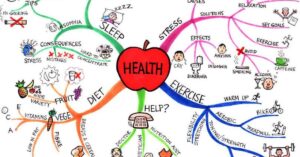Farming and agriculture are essential practices that provide food, fibers, and resources critical to human survival. They involve the cultivation of crops and the raising of livestock, forming the backbone of economies and cultures worldwide. As both an art and a science, agriculture has evolved over the centuries, adapting to technological advancements and changing environmental conditions.
Today, the agricultural sector faces significant challenges, including climate change and the need for sustainable practices to feed a growing global population. Innovative techniques and technologies, such as precision farming and organic agriculture, are being implemented to enhance productivity while reducing environmental impact. In this context, the role of agriculture becomes increasingly vital as society seeks to balance food security with ecological responsibility.
History of farming practices

The history of farming practices dates back over 10,000 years, marking a transformative shift from nomadic lifestyles to settled agricultural societies. It began with the domestication of wild grains and animals in the Fertile Crescent, where early farmers discovered the power of cultivating surplus food. This pivotal moment not only supported larger populations but also laid the groundwork for complex cultures and innovations that would shape civilizations.
As techniques evolved, farming practices became increasingly sophisticated. The introduction of crop rotation, irrigation, and selective breeding allowed for greater yields and resilience against pests. From the ancient plows to today’s advanced machinery, each era has built upon the last, creating a rich tapestry of agricultural history. This heritage continues to inform modern farming, emphasizing the enduring bond between humanity and the land we cultivate.
Types of agriculture

Agriculture comes in various forms, each suited to different climates and markets. Subsistence farming focuses on producing just enough for a household, while commercial agriculture aims for profit with large-scale cash crops. Organic farming emphasizes sustainability and natural methods, appealing to health-conscious consumers. Each type showcases unique traditions and innovations in food production.
Delving deeper, we find niche practices like permaculture, which mimics natural ecosystems, and hydroponics, where plants grow in nutrient-rich water without soil. Agroforestry merges agriculture and forestry, providing both crops and timber. Together, these diverse farming methods reflect human creativity and our ongoing relationship with food and nature.
Crop management techniques
Crop management techniques are the backbone of successful farming, ensuring that every seed sown has the potential to thrive. From precision planting to integrated pest management, these strategies optimize growth while minimizing waste. Farmers today harness technology, using drones and data analytics to monitor crop health in real-time. This proactive approach not only boosts yields but also promotes sustainability, allowing for smarter resource use.
Moreover, crop rotation and cover cropping are time-tested methods that enrich the soil and enhance biodiversity. By alternating crops and planting cover crops during off-seasons, farmers can naturally replenish nutrients and combat pests. These techniques create a resilient ecosystem, fostering healthier plants and reducing the need for chemical inputs. In a world facing food security challenges, innovative crop management is key to feeding the future sustainably.
Livestock farming and animal husbandry

Livestock farming and animal husbandry are vital pillars of sustainable agriculture. They bring life to fields, providing food, fiber, and companionship. Each animal, from sturdy cows to playful goats, creates a vibrant ecosystem, recycling nutrients and enhancing land management.
Today, ethical livestock farming is essential. It prioritizes animal care and well-being while embracing sustainable practices. As farmers adopt innovative methods, the bond between agriculture and animals strengthens, promoting harmony for a healthier planet.
Sustainable farming practices
Sustainable farming practices are the key to a thriving planet. They harmonize agriculture with nature, ensuring that the earth can provide for future generations. Techniques like crop rotation and organic farming nourish the soil and protect biodiversity. It’s all about working with the land, not against it.
Embracing sustainability means cutting waste and conserving resources. Farmers use rainwater harvesting and renewable energy, reducing their carbon footprint while boosting yields. By prioritizing ecological balance, these practices forge a pathway to a resilient and vibrant food system. It’s farming for today and safeguarding tomorrow!
Impact of climate change on agriculture
Climate change is shaking the very foundations of agriculture. Rising temperatures and erratic weather patterns create a rollercoaster ride for crops, leading to unpredictable yields and increased pests. Farmers are caught in a tug-of-war as droughts scorch fields and floods wash away hard-earned harvests. The rhythm of the seasons is shifting, leaving food security hanging in the balance.
But it’s not all doom and gloom; adaptation is key! Innovations like drought-resistant crops and precision farming offer rays of hope. By embracing sustainable practices, farmers can fortify their defenses against climate shifts. With creativity and resilience, agriculture can transform challenges into opportunities, sowing the seeds for a more sustainable future.
Technological advances in farming

Technological advances in farming are revolutionizing the way we grow food. From drones surveying vast fields to AI-powered analytics predicting crop yields, innovation is the new farmer’s best friend. Smart sensors monitor soil health, allowing precise irrigation and minimizing waste. It’s a tech-savvy transformation that’s boosting productivity and sustainability.
In this digital age, robotics is changing the game. Autonomous tractors plow fields with pinpoint accuracy, while harvesters work around the clock. Vertical farming systems elevate crops to new heights, bringing fresh produce closer to urban centers. Technology isn’t just enhancing efficiency; it’s reshaping the future of agriculture one innovation at a time!
Conclusion
In conclusion, the fusion of technology and farming is fundamentally transforming the agricultural landscape. By leveraging advanced tools and techniques, farmers can optimize yields, reduce environmental impact, and adapt quickly to changing conditions. This tech-driven evolution not only enhances productivity but also fosters a sustainable approach to feeding the planet.
Ultimately, the future of farming relies on embracing innovation and collaboration. As we harness the power of technology, we can create resilient agricultural systems that thrive amidst challenges. The journey ahead promises not just progress in efficiency but also a deeper connection to the land and our role in nurturing it for generations to come.
FAQ’s
What is precision agriculture?
Precision agriculture is a farming management concept that uses technology to monitor and optimize field variability in crop production. It increases efficiency and reduces waste by applying inputs based on specific field conditions.
How does technology enhance farm productivity?
Technology improves farm productivity through data-driven decisions, allowing farmers to optimize planting schedules, irrigation, and nutrient management. Tools like drones and sensors provide real-time insights for better resource management.
What role do drones play in agriculture?
Drones assist in monitoring crop health, assessing soil conditions, and managing livestock from above. They provide aerial imagery that can help farmers make informed decisions to improve yields.
How can consumers support sustainable agriculture?
Consumers can support sustainable agriculture by choosing locally sourced and organically grown products. This helps reduce the carbon footprint and encourages environmentally friendly farming practices.
What are the benefits of crop rotation?
Crop rotation improves soil health, reduces pests and diseases, and enhances biodiversity. By alternating different crops, it helps maintain nutrient balance and supports a more resilient agricultural system.
Guest Blogger and Content Writer










